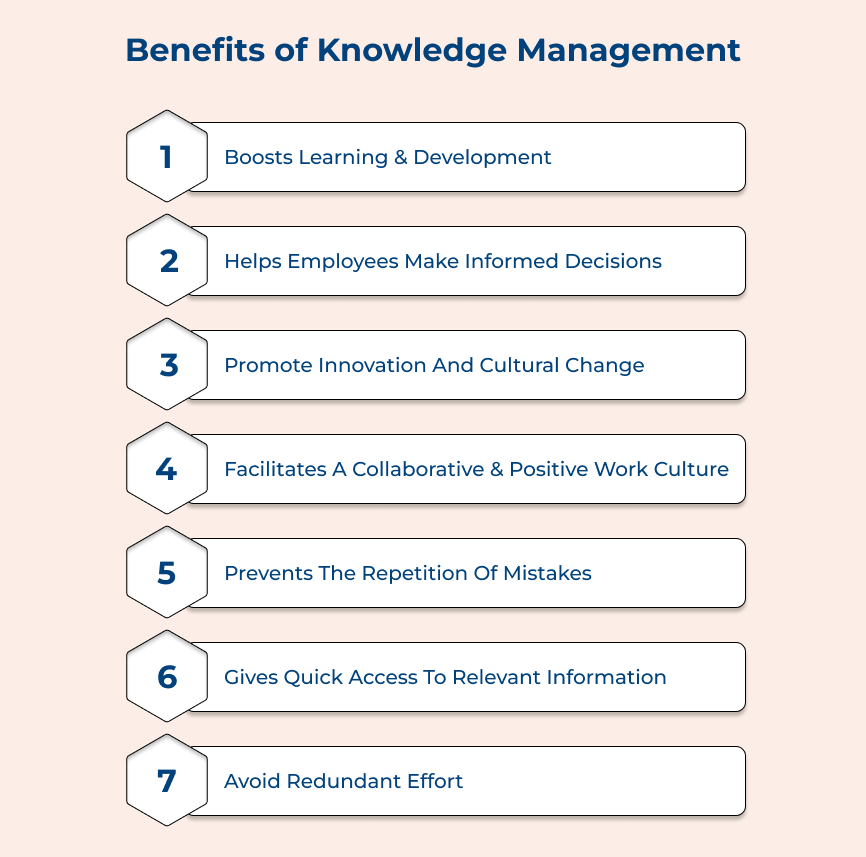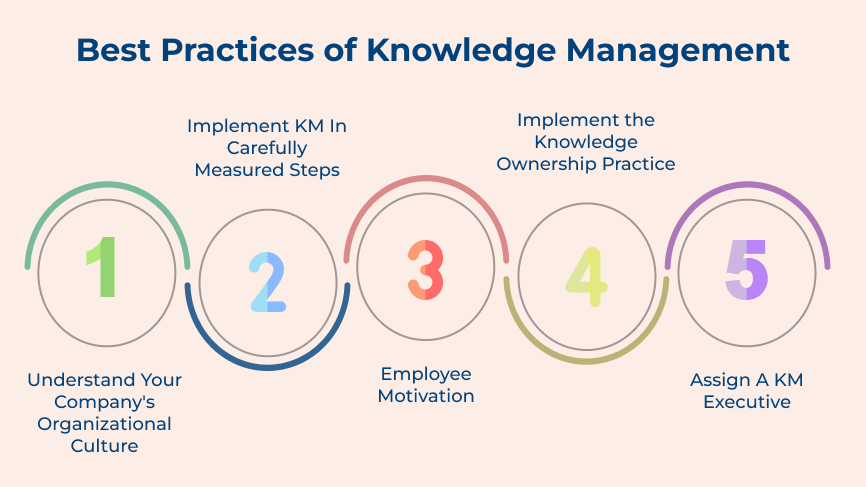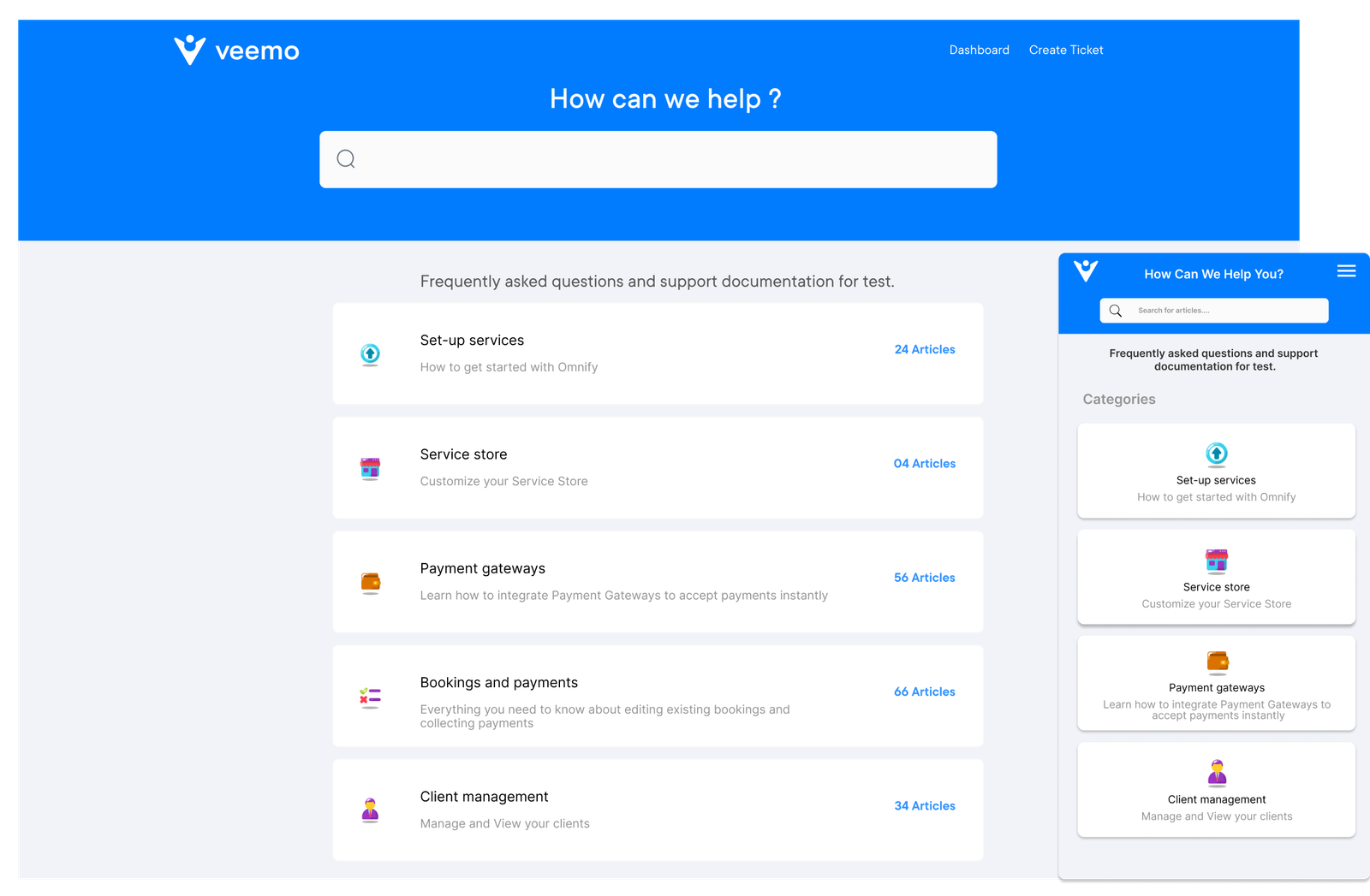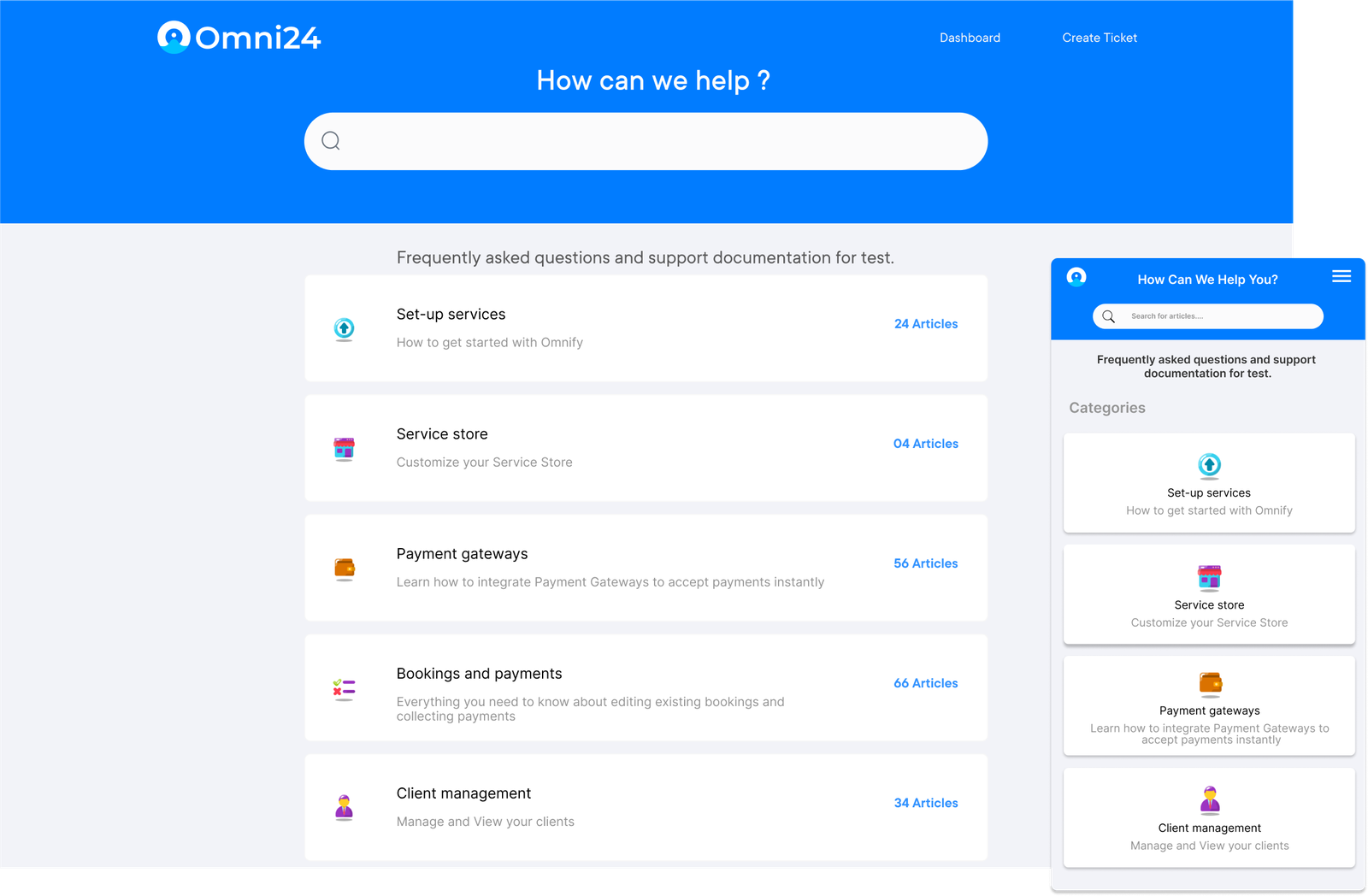1. Boosts Learning & Development
Knowledge management plays a crucial role in enhancing various aspects of a business and one significant benefit is its ability to boost learning. When knowledge is effectively managed within an organization, employees can access valuable information and resources that can enhance their skills.
Suppose a software development company implements a knowledge management system. Their developers can access a repository of coding guidelines, best practices and troubleshooting tips. It allows them to enhance their skills and stay updated with the latest programming languages.
Actionable tips:
- Encourage employees to actively contribute to the knowledge management system by sharing their expertise and experiences.
- Regularly update and curate the knowledge management system to ensure that the information remains up-to-date.
- Promote a learning culture within the organization by providing training opportunities and promoting continuous education for employees.
2. Helps Employees Make Informed Decisions
Having a proper knowledge system in place can bring numerous knowledge management benefits to a business. One of these benefits is that it helps employees make informed decisions. When employees have access to the right information and knowledge, they can make better choices that align with the values of the organization.
Consider a customer service representative who might be facing a challenging customer issue. They can make an informed decision on how to handle the situation by accessing previous case studies and learning from the experiences of colleagues who have successfully resolved similar issues. It empowers the employee to provide a satisfactory resolution and uphold customer satisfaction.
Actionable tips:
- Encourage collaboration and knowledge sharing among employees by implementing online forums or brainstorming sessions to exchange insights.
- Invest in development programs that focus on enhancing critical thinking and analytical skills, enabling employees to make better informed decisions.
- Regularly update and curate the knowledge management system to ensure the relevance of information.
3. Promote Innovation and Cultural Change
Innovation and cultural change are essential for a company to stay competitive. It is where proper knowledge management can play a crucial role in promoting the necessary transformations. Innovation drives growth and enables businesses to adapt to changing market conditions.
Knowledge management facilitates the exchange of information across different departments, breaking down silos and encouraging collaboration. It ensures that valuable insights are not lost when employees leave the organization and it promotes a culture of continuous learning.
Actionable tips:
- Encourage cross-functional collaboration to promote the exchange of diverse perspectives and ideas.
- Provide platforms for employees to easily capture, document and share their knowledge.
- Promote a culture that recognizes innovation and encourages employees to think outside the box.
4. Facilitates a Collaborative & Positive Work Culture
One of the significant knowledge management benefits is that it facilitates a collaborative and positive work culture within an organization. Employees are encouraged to share their ideas, insights and best practices in a collaborative work culture. It leads to increased innovation and problem-solving ability. Knowledge management creates a centralized repository of information where employees can store, organize and retrieve knowledge.
Let’s take a sales team for example. They can leverage a knowledge management system to access customer insights, past successful strategies and market trends. It enables them to collaborate effectively, share their experiences and develop innovative sales approaches, eventually leading to better sales performance.
Actionable tips:
- Encourage open communication channels and provide platforms for sharing knowledge.
- Recognize and reward employees who actively contribute to the collaborative work culture.
- Promote a learning mindset by encouraging continuous learning and professional development opportunities for employees.
5. Prevents the Repetition of Mistakes
One of the key advantages of knowledge management for your business is its ability to prevent the repetition of mistakes. Effectively managing knowledge allows businesses to identify and document mistakes, whether they are related to products, processes or customer interactions. The knowledge can then be organized and shared across the organization, creating a culture of improvement.
Imagine a software development company that experiences a major security breach. Knowledge management allows companies to thoroughly analyze the breach, identify the vulnerabilities and create best practices to strengthen their security measures. The knowledge can then be disseminated throughout the organization, ensuring that all employees are aware of the potential risks and can take appropriate precautions.
Actionable tips:
- Encourage employees to share their experiences, failures and lessons learned. Create platforms for knowledge sharing such as internal forums or regular team meetings.
- Utilize tools that allow for efficient storage, organization and retrieval of information. It ensures that the knowledge is readily available and easily accessible when needed.
- Promote collaboration and communication between different departments. It allows for the exchange of knowledge and ideas, enabling the organization to proactively prevent mistakes through shared insights.
6. Gives Quick Access to Relevant Information
Quick and easy access to relevant information is vital for the success of any organization. It is where the KMS benefits come into play. Proper knowledge management enables employees to quickly retrieve the information they need, whether it is market research, customer data, or product specifications. 74% of organizations estimate that effective knowledge management disciplines increase company productivity by 10-40%.
Easy access to relevant information enhances decision-making processes and allows for proactive problem-solving. Let’s say a customer service representative has access to comprehensive knowledge about a product. They can address customer inquiries and resolve issues promptly. It leads to satisfied customers, increased loyalty and business growth.
Actionable tips:
-
Invest in a knowledge management system that offers advanced search capabilities, allowing employees to find information using keywords or filters quickly.
-
Ensure that the information in your knowledge management system is accurate, up-to-date and relevant. Establish processes for ongoing maintenance so that employees can rely on the information they retrieve.
-
Educate the workforce on how to effectively navigate and utilize the knowledge management system. Provide training on search techniques, data input guidelines and encourage employees to share their expertise by contributing to the knowledge base.
7. Avoid Redundant Effort
Inefficiencies can arise when employees spend time searching for information that has already been created or duplicating tasks that have already been completed. Effective knowledge management enables businesses to ensure that employees have easy access to relevant and up-to-date information. It eliminates the need to repeat work or waste time on unnecessary tasks.
Avoiding redundant effort is important for businesses because it maximizes productivity and saves valuable resources. Eliminating duplicate work allows companies to allocate their time and resources more effectively toward achieving their goals. It not only improves efficiency but also enhances employee satisfaction and morale.
Actionable tips:
- Create a culture that promotes collaboration and encourages employees to share their experiences. It can be done through regular team meetings, brainstorming sessions and using internal communication platforms.
- Establish clear protocols and guidelines for various tasks. Document the processes in a centralized repository and regularly update them to reflect new learnings.
- Provide continuous learning opportunities for your employees, such as training sessions or access to online learning platforms.
Best Practices of Knowledge Management for Business Benefits
Following are the essential practices that will empower your business to leverage knowledge effectively, unlocking the door to unprecedented opportunities for growth and success.















